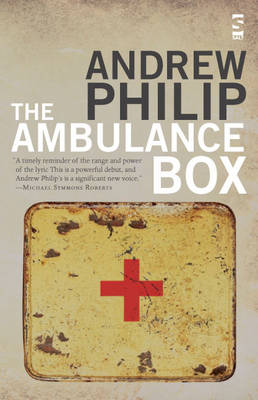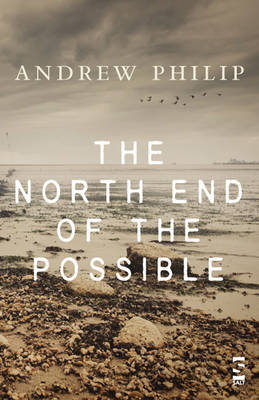Salt Modern Poets
2 total works
Shortlisted for The Seamus Heaney Centre Prize and The Aldeburgh First Collection PrizeThe Ambulance Box heralds the arrival of a strong and passionate new voice. Striking a fine balance between thought and feeling, Andrew Philip’s poetry is by turns lyrical, allusive and direct; subtly experimental and unafraid of traditional form. Above all, it is intense, tender, inquisitive writing, alive to the wonder as well as the hurt of the world we inhabit.
At the heart of this book – dedicated to Philip’s first child, who died shortly after birth – is a deeply moving exploration of loss and discovery. In poems of unsentimental and unsettling beauty, The Ambulance Box examines the sudden transformations of grief.
Nonetheless, this is a wide-ranging volume and not without a sense of playfulness. A central sequence of poems, written to accompany an exhibition by award-winning Scottish painter David Martin, recasts John Bunyan’s “Pilgrim’s Progress” as a contemporary journey through faith and doubt, certainty and ambiguity. Environmental concerns are wrapped up in a mathematical meditation or a tribute to the music of Olivier Messiaen. The great German poet Rainer Maria Rilke is claimed for Philip’s home nation in several fine Scots translations, including the stunning “Orpheus. Eurydice. Hermes.”
This is poetry that will draw you back with its music, its mystery and its power.
How do isolation, belonging and the land shape us? What difference does this make to how we live? Andrew Philip's second collection delves deep into these and other questions.
In the opening and closing portions of the book, Philip takes us further into the life of MacAdam — an enigmatic character from his multi-award nominated debut, The Ambulance Box. MacAdam, who seems to have built a version of the Large Hadron Collider in his garden shed, attempts to find "the fundamental particle of night". We follow him into the chaos that results, as his experiments run out of control, culminating in a powerful encounter with a mysterious intruder.
The middle of the collection brings us poems of place, love and politics. A newsreader's BBC English transmogrifies into Scots without her realising. Edinburgh's worst piper is lambasted in a rollicking Burns pastiche that led novelist Rodge Glass to dub Philip his "new favourite poet". And an intricate, tender sequence charts the highs and lows of a decade of marriage.
Rich in humour, imaginative reach and formal invention, The North End of the Possible displays a fresh strength in narrative writing for Philip and pushes his lyric gifts to new heights.

